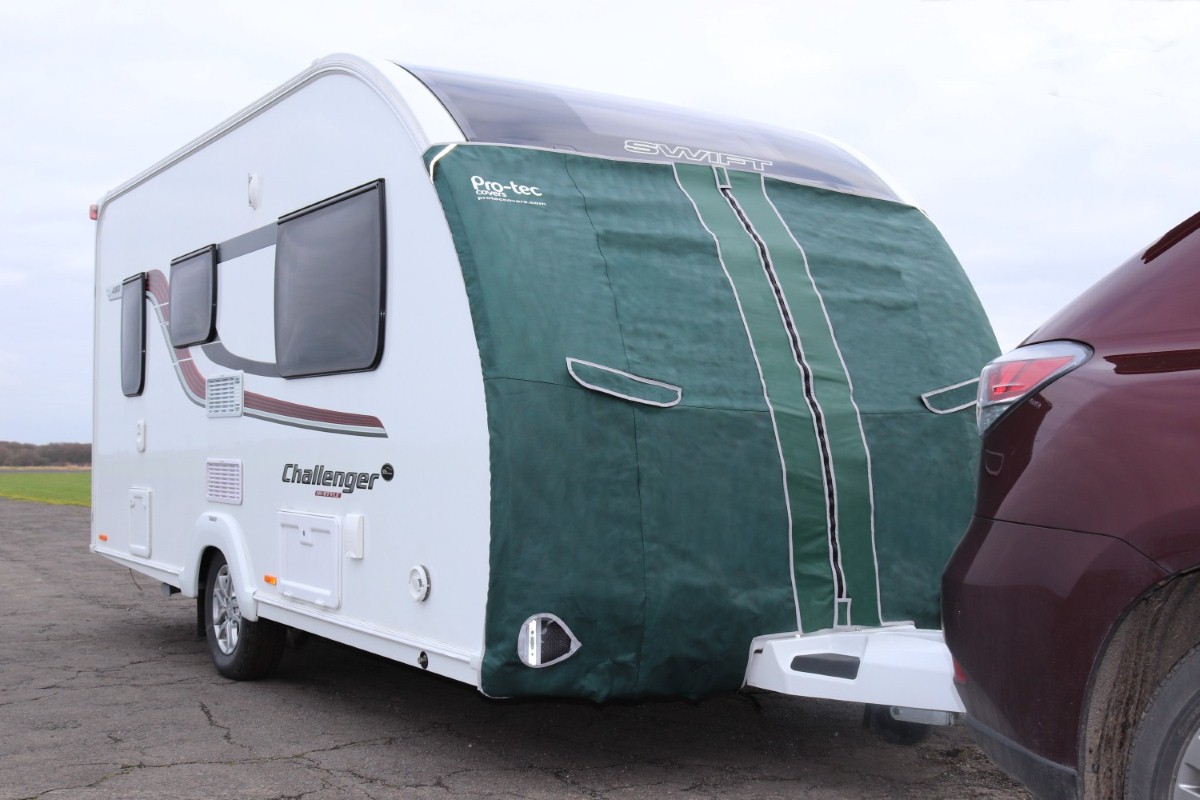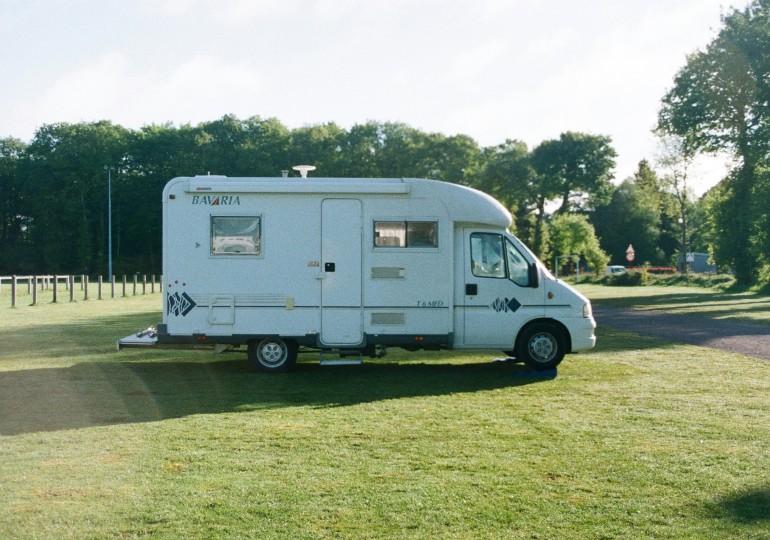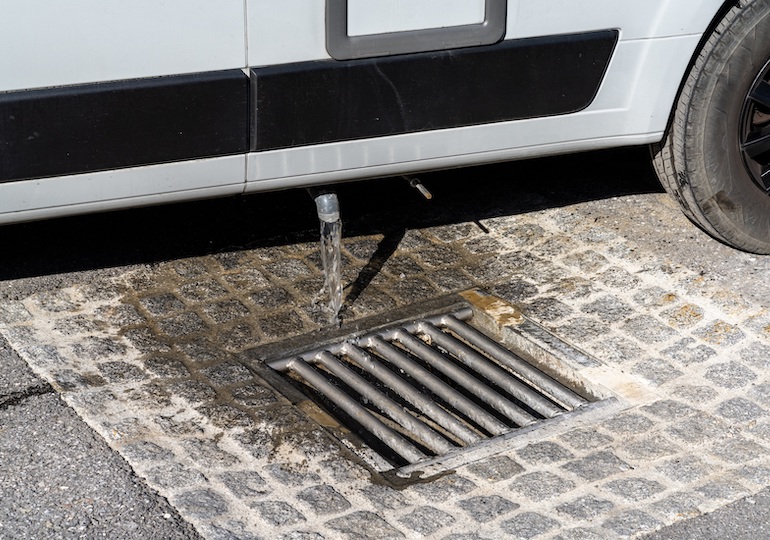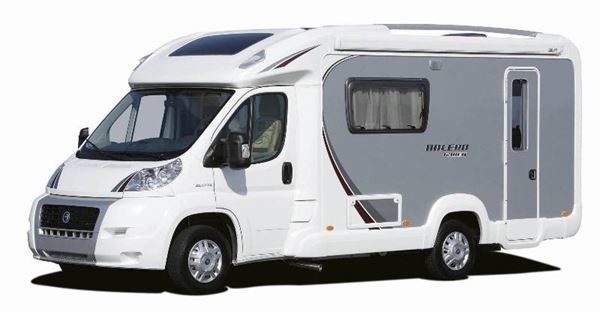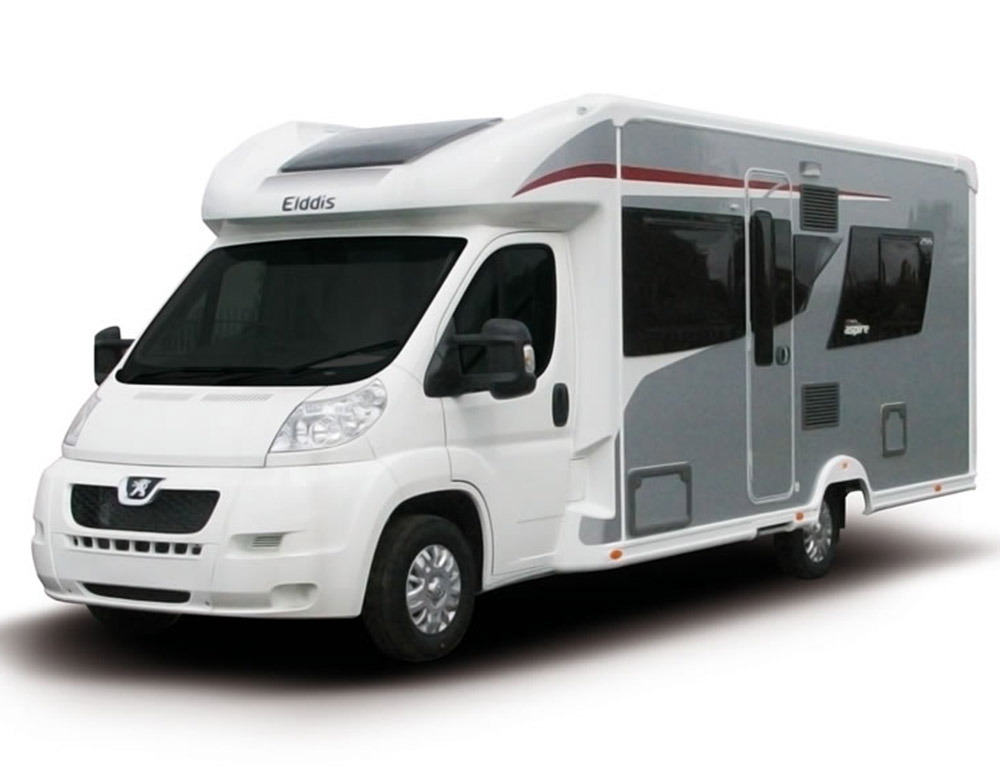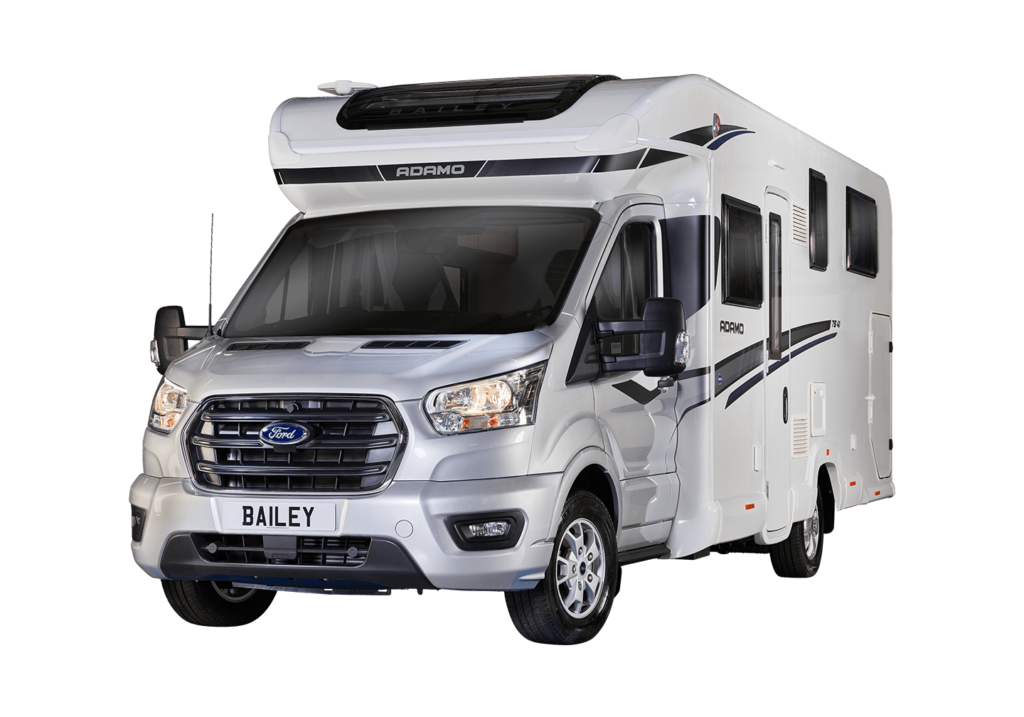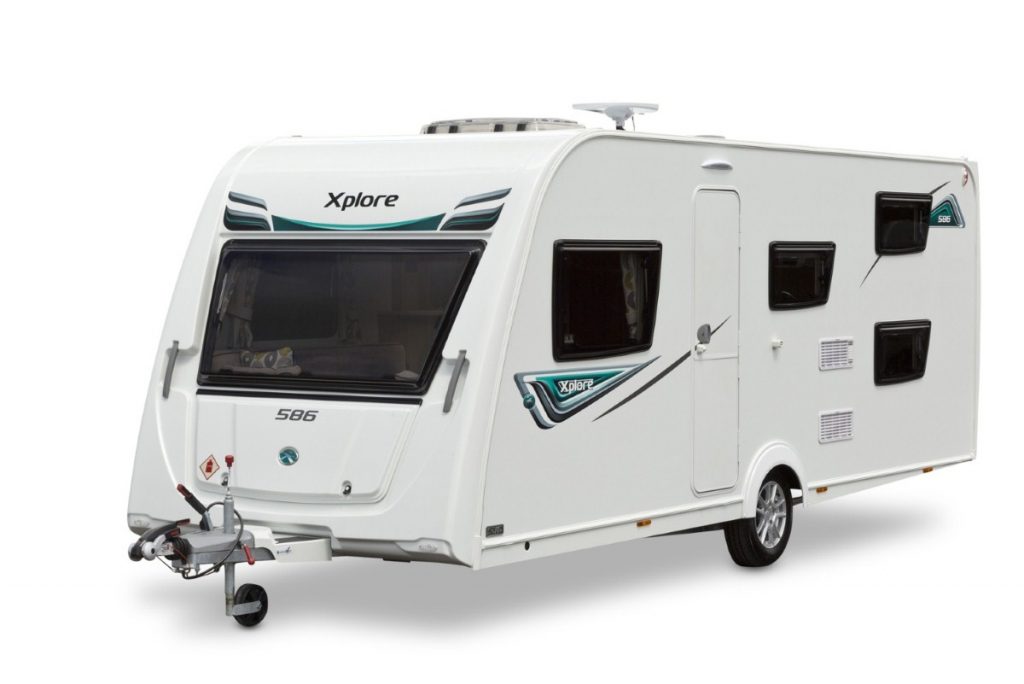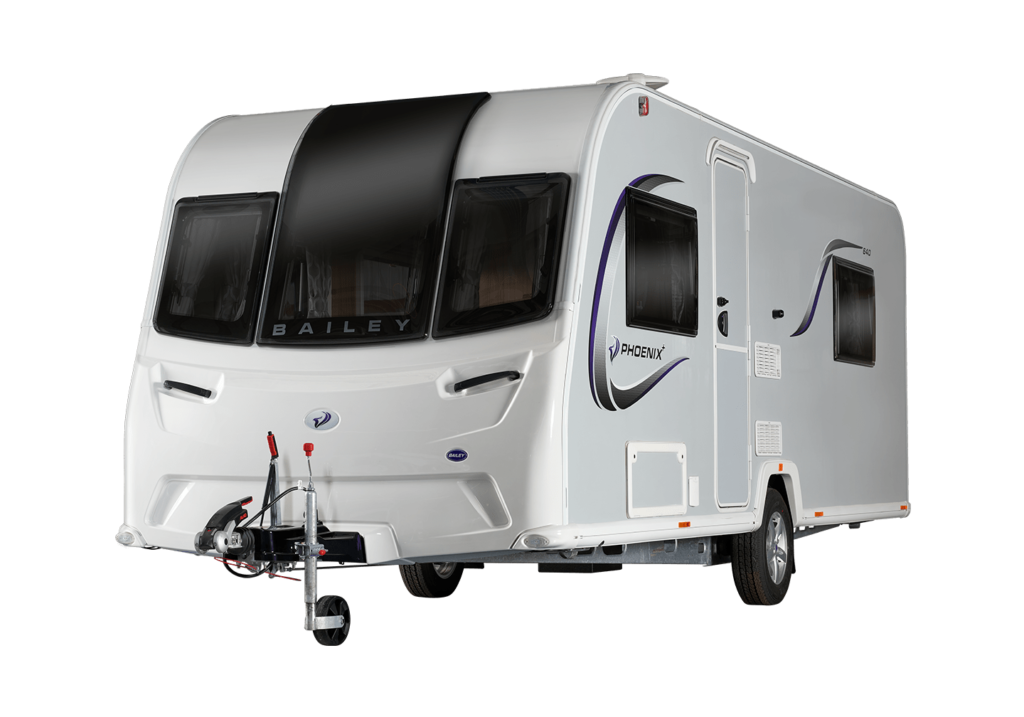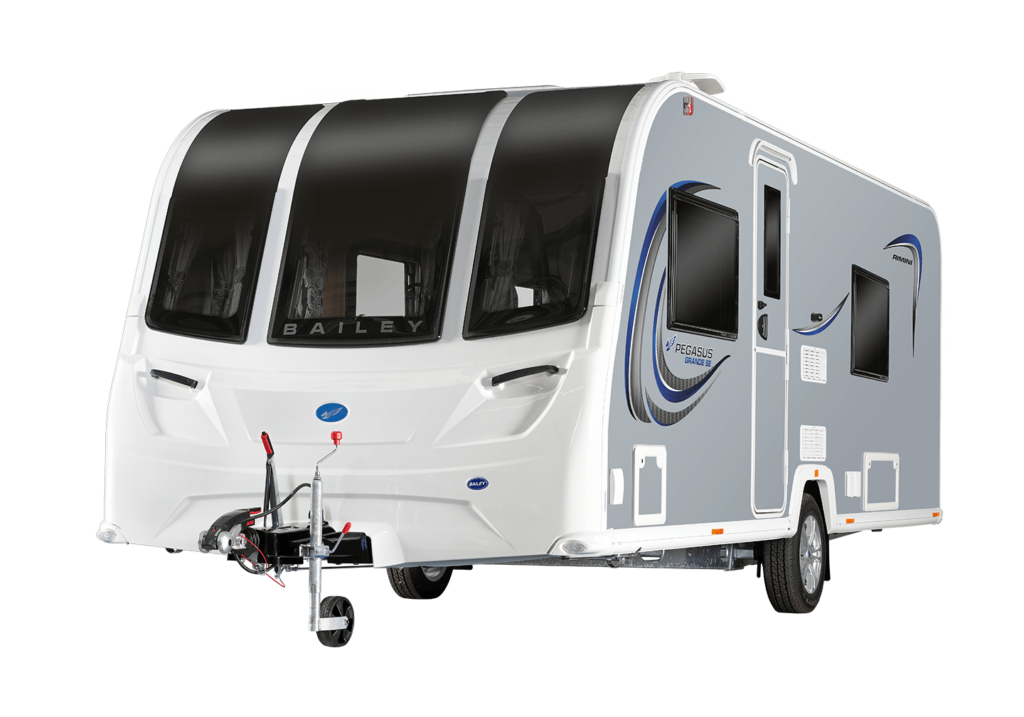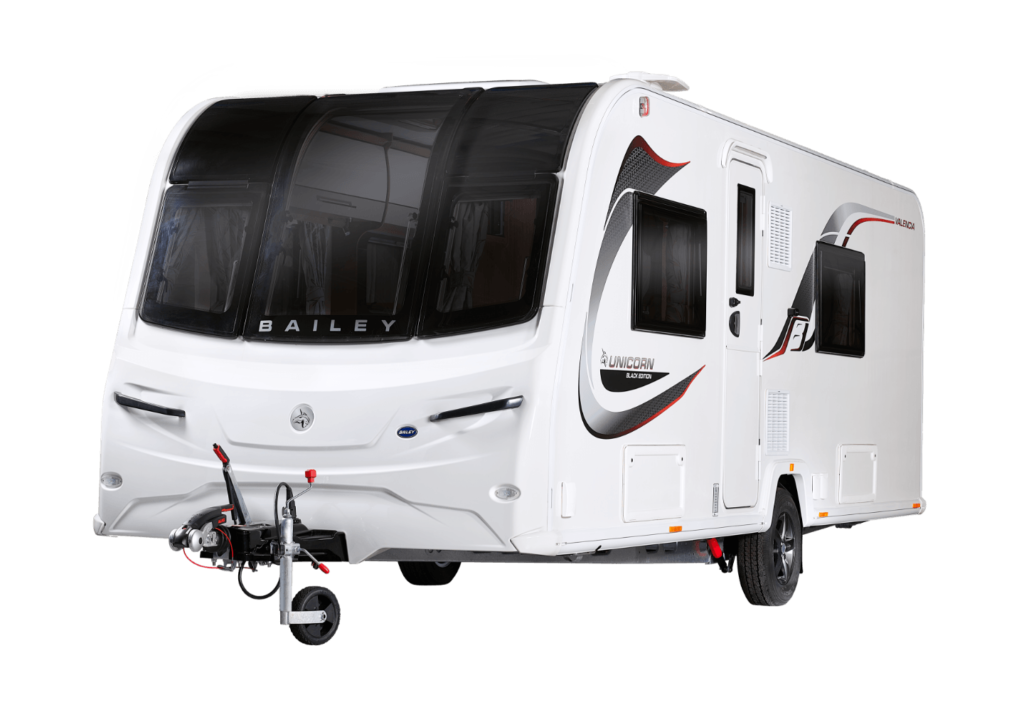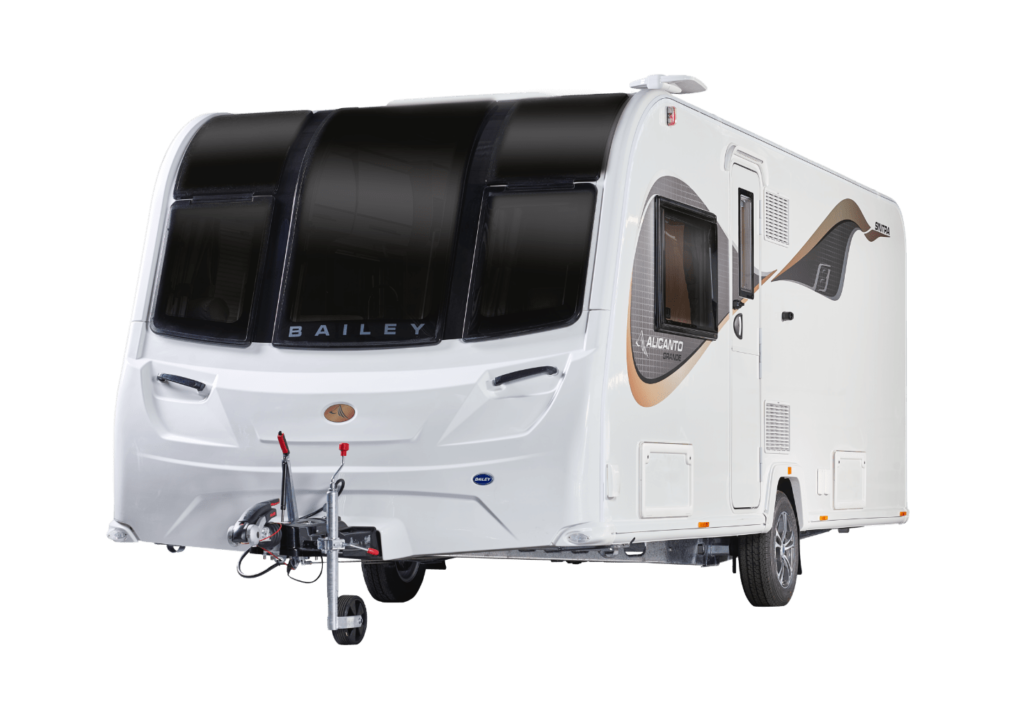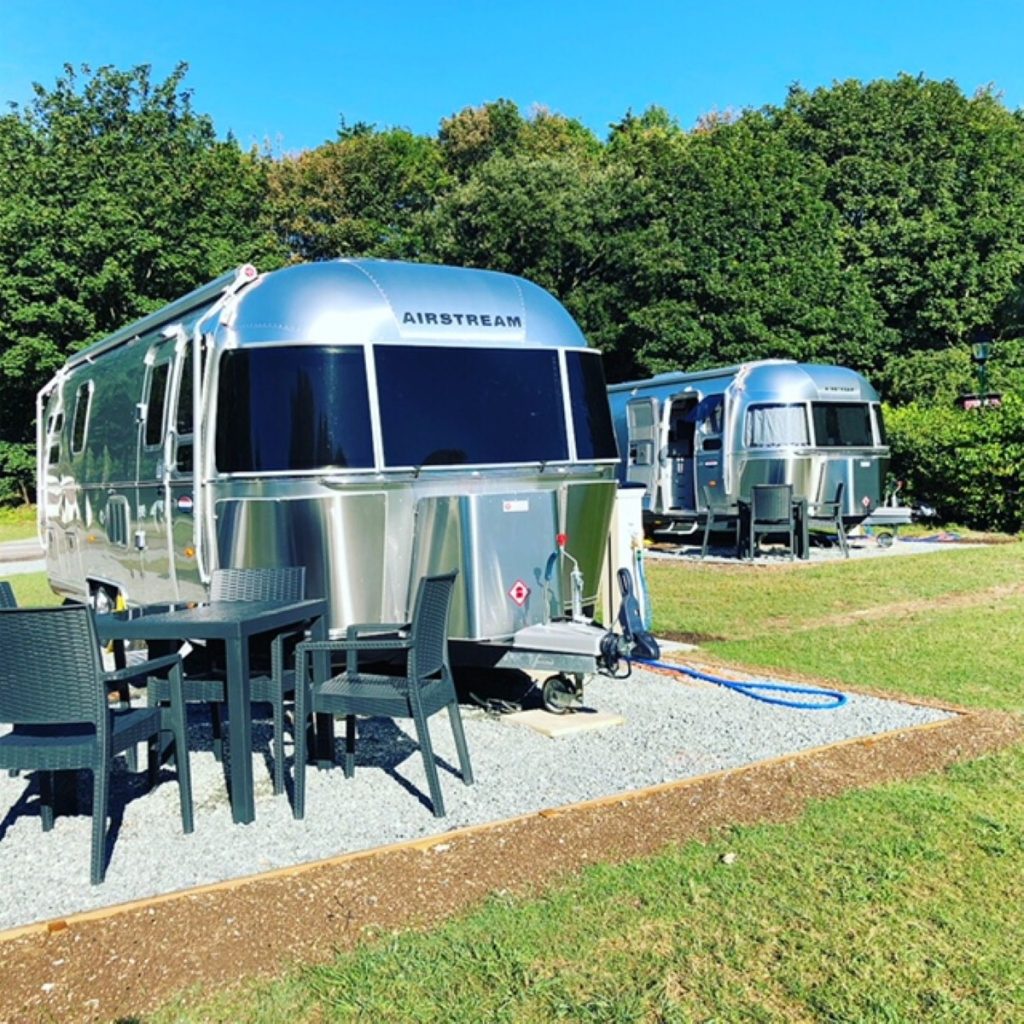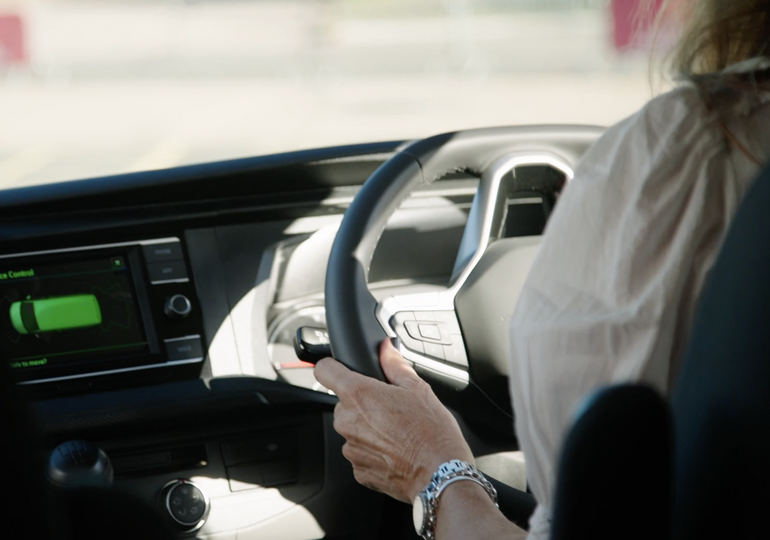By William Coleman
Using a cover for your caravan, or motorhome is a method that should be employed by all responsible owners who want to get more mileage out of their leisure vehicle. A cover can be used for both towing and storage, so you will get your money’s worth from the moment you purchase one.
Imagine saving up all those hard-earned pennies, travelling to your dealer, buying a caravan, towing it for the first time and then seeing a nice big chip or crack on one of the panels or windows. This happens more often than you’d think and can be easily avoided by something as simple as a cover.
Like most aftermarket purchases, covers come in all shapes, sizes and qualities and it’s wise to invest well when it comes to protecting your leisure vehicle. As the saying goes, buy cheap and you’ll end up buying twice.
Despite the gargantuan amount of protection a cover provides, you still see an awful lot of vans being both towed and stored without one attached.
If you are in two minds on whether you should splash out on a cover, we have a few essential reasons why you really should.
Stored at home safely.?
If your caravan is stored on the drive or down the side of the house it should be safe, right? Unfortunately, this is not always the case and can sometimes actually be quite a bad idea.
Over the years, countless caravans have been stolen from front doorsteps all across the UK, many of which without covers.
First and foremost a cover can deter would-be thieves. The time it takes to remove a cover, not to mention the noise and effort, does not make for a very swift getaway. This alone makes a cover very much worth its weight in gold.
The same logic applies for vandalism as caravans are still very much a victim of pointless and random attacks. It’s a simple case of, out of sight out of mind.
Stay safe from the elements
A van’s life can sometimes be tough, so you should do all you can to keep it safe and sound when in storage.
From the end of October to the beginning of March, the majority of leisure vehicles are not in use and are either kept at home or at a storage facility. Either way, you should still cover it up.
One day before the February show this year, a CaravanTimes team member lost the roof to their house during a storm and their home flooded, so imagine what a storm of that scale could do to a defenceless caravan?
With the weather seemingly getting worse each year, it is more than likely that stored caravans will start to bear to the brunt of it.
Water ingress and storm damage can be reduced by using a good cover. It will also prevent the wind from throwing stones, leaves and all manner debris directly against the van.
Another point worth mentioning is how filthy the exterior of the van can get during the winter months. Nobody wants to clean the van two to three times just to remove the layer of grime mother nature has provided.
Protection on the move
Roads can sometimes be very tricky to navigate when you have a caravan hitched up. It is our firm belief that those who tow are perhaps some of the safest drivers on the road, but poor road conditions and other drivers are where the dangers come from.
Debris is enemy number one when it comes to towing, especially on A-roads and motorways. Chips, dings and dents on a caravan tend to occur while driving and are very much unavoidable.
If your caravan is well wrapped, it will provide a layer of protection between road shrapnel and precious cargo. This will also stop the caravan from becoming a squashed-bug graveyard. Nobody wants to spend their first hours on-site removing bug body parts!

